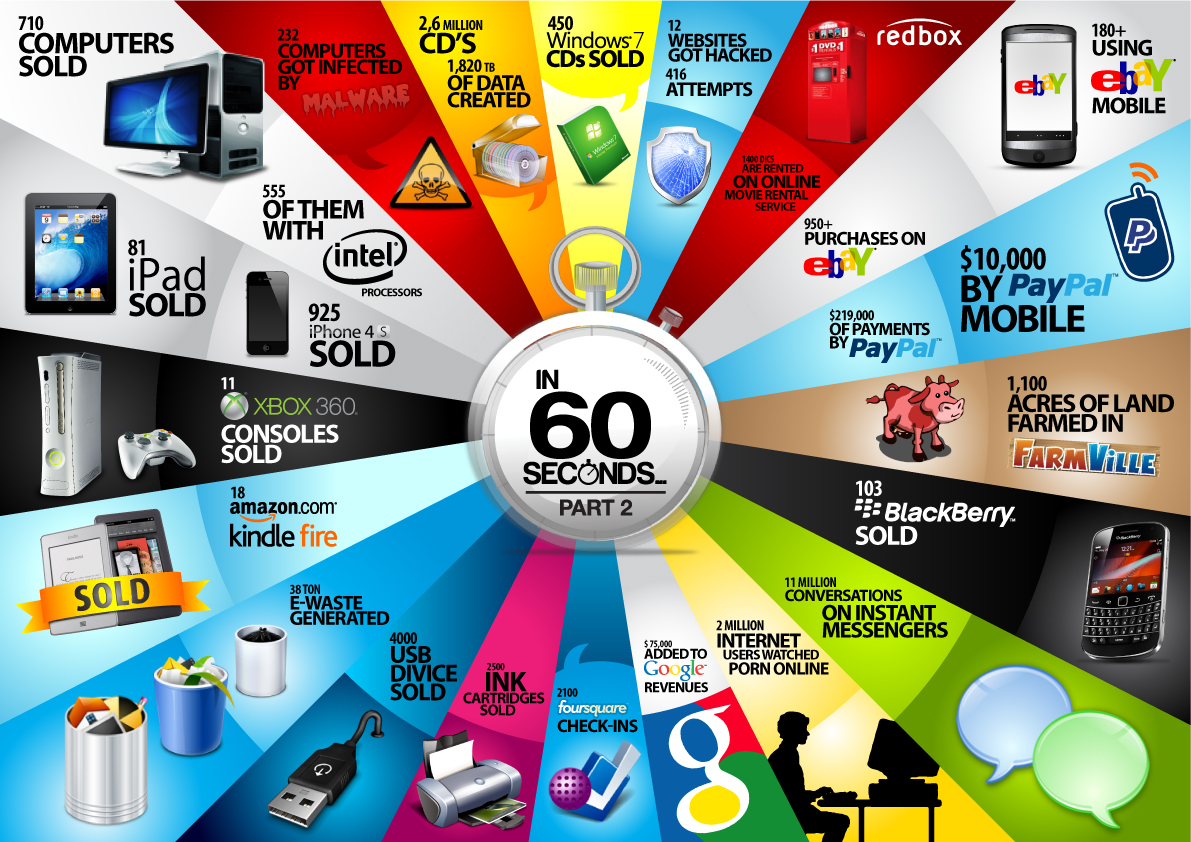Startup funding in MENA has become a major force behind the region's growing economy. Simply put, startup funding is money given to new businesses to help them grow. This money usually comes from investors, venture capital firms, or government programs. It helps startups build their products, hire teams, and reach customers faster.
In recent years, the MENA startup ecosystem has grown rapidly. Countries like the UAE, Saudi Arabia, and Egypt have become hubs for innovation. Young entrepreneurs are building apps, tech platforms, and new services across industries like fintech, e-commerce, and healthtech. Governments are also supporting startups with funding, training, and policy reforms.
Tracking MENA startup investment and startup statistics is very important for investors, founders, and policymakers. It helps everyone understand which sectors are booming, what kinds of startups are attracting funding, and where future opportunities may lie. Keeping an eye on these trends can also help entrepreneurs know how to raise money and build strong, successful businesses in the region.

Infographics by GO-Globe Ecommerce Web design Qatar
Contents
- 1 The Evolution of MENA Startup Investment
- 2 Startup Statistics and Funding Data in MENA (2024 Update)
- 3 Country-Specific Funding Trends
- 4 Key Sectors Dominating Startup Funding in MENA
- 5 Predictions and Future Trends in MENA Startup Funding
- 6 How Founders Can Secure Funding in the MENA Region
- 7 Tools and Resources for MENA Startups
- 8 Conclusion: Navigating the MENA Startup Investment Landscape
The Evolution of MENA Startup Investment
Key Milestones in MENA Startup Funding History
The journey of startup funding in MENA has gone through several big changes over the past decade. In the early 2010s, there were only a few small investment deals. Most startups got their first support from family, friends, or angel investors. Funding was limited, and many businesses struggled to grow.
Things began to change with the rise of tech-focused startups. Countries like the UAE, Egypt, and Jordan started to become home to new digital platforms, apps, and online services. E-commerce, food delivery, and ride-hailing startups like Souq.com and Careem attracted international attention. These success stories encouraged more investors to support tech startups in the region.
By the mid-2010s, early-stage funding trends shifted rapidly. More seed funding and Series A investments began flowing into the market. This helped startups build better products, hire skilled teams, and scale faster. The number of startup funding deals in MENA grew year by year, showing that investor confidence was increasing.
MENA VC Landscape: Then vs Now
The venture capital (VC) scene in the MENA region has grown significantly. A decade ago, there were only a few VC firms willing to take risks in this market. Now, there are dozens of active VCs across the Gulf Cooperation Council (GCC) and North Africa, backing everything from fintech to healthtech startups.
Governments also play a major role in supporting the MENA startup investment ecosystem. Countries like Saudi Arabia and the UAE have launched accelerator programs, startup hubs, and even public investment funds to help new businesses succeed. These efforts are creating a more welcoming environment for innovation.
Today, startup statistics show that funding rounds have become larger, with some startups raising millions of dollars. Investors are no longer just local—they include global players from the US, Europe, and Asia, all showing interest in the region’s potential.
Startup Statistics and Funding Data in MENA (2024 Update)
Total Capital Raised by MENA Startups
As of 2024, startup funding in MENA has hit a new record. Startups across the region raised over $4 billion USD in venture capital last year. This shows how quickly the MENA startup investment landscape is growing.
When we break it down by country, the UAE leads the pack, attracting the highest amount of funding. Its strong infrastructure and supportive business laws make it a startup hub. Saudi Arabia is next, with rapid growth in sectors like fintech and logistics. Egypt follows closely behind, especially known for its booming tech talent and startup culture.
The top sectors receiving the most money in 2023 and 2024 include:
- Fintech – Startups offering digital wallets, payments, and banking solutions
- Healthtech – Platforms for telemedicine, online pharmacies, and health tracking
- Logistics – Delivery, supply chain, and e-commerce infrastructure startups
These sectors solve real problems in the region, making them attractive to both local and international investors.
Funding Round Trends: Seed to Series A and Beyond
Funding rounds in MENA are becoming more structured. Startups are moving from seed rounds (early investments) to Series A and Series B rounds (growth-stage funding) more frequently than ever before.
- In 2023–2024, average seed funding rounds ranged between $250K to $1 million USD
- Series A rounds often exceeded $3 million USD, especially in fintech and SaaS companies
The region has also seen a rise in active investors. Some of the most well-known players include:
- Flat6Labs
- Wamda Capital
- 500 Global
- STV (Saudi Technology Ventures)
- Chimera Capital
These investors are not just giving money—they’re mentoring startups and helping them grow.
Startup Exits, Mergers & Acquisitions in MENA
Another sign of a healthy ecosystem is the number of startup exits—when a company gets bought or goes public. In recent years, the MENA region has seen some big wins.
Notable success stories include:
- Careem, which was acquired by Uber for $3.1 billion
- Souq.com, bought by Amazon and rebranded as Amazon.ae
- Tamara, a Saudi buy-now-pay-later startup that raised hundreds of millions and may go public soon
These mergers, acquisitions, and IPOs show that MENA startup investment is paying off. Investors are seeing real returns, which encourages even more funding into the ecosystem.
Country-Specific Funding Trends
UAE Startup Investment Landscape
When it comes to startup funding in MENA, the United Arab Emirates (UAE) stands out as a clear leader. It is home to a vibrant ecosystem, with Dubai often called the Silicon Valley of the Middle East.
Dubai offers a friendly business environment, world-class infrastructure, and low taxes. These benefits make it easy for startups to launch and grow quickly. The city has become a magnet for entrepreneurs, especially in fintech, e-commerce, and logistics.
The UAE government plays a big role in supporting startups. Programs like:
- Dubai Future Accelerators
- Hub71 in Abu Dhabi
- Mohammed Bin Rashid Innovation Fund
These help local and international startups gain funding, mentoring, and market access.
Investor confidence in the UAE remains strong, especially with new policies that allow 100% foreign ownership and long-term visas for entrepreneurs. All of this supports continuous MENA startup investment growth.
Saudi Arabia and Vision 2030: Startup Boom
Saudi Arabia is on a fast track to becoming one of the top innovation centers in the region. Backed by the country's ambitious Vision 2030, the government is working to diversify the economy and reduce its reliance on oil. This has opened the doors wide for startup investment in Saudi Arabia.
One of the key players is the Public Investment Fund (PIF), which has launched multiple startup-focused initiatives like:
- Sanabil Investments
- Jada Fund of Funds
Local venture capital (VC) firms, like STV and RAED Ventures, are also pouring money into startups, especially those in fintech, healthtech, and edtech.
With events like LEAP tech conference and the growth of tech zones in Riyadh and Neom, Saudi Arabia is creating a space where startups can thrive and attract funding from across the globe.
Egypt’s Growing Startup Ecosystem
Egypt is quickly gaining a reputation as a leading startup destination in North Africa. The capital, Cairo, has become a hotbed for startups, especially in fintech, e-commerce, and edtech.
Egypt benefits from:
- A large, young, tech-savvy population
- Low operational costs for startups
- A growing number of incubators and accelerators (like Flat6Labs and Falak Startups)
International and regional investors have taken notice. Funding into Egyptian startups has jumped significantly, with notable investments from firms in the UAE, Saudi Arabia, and Europe.
This strong startup investment trend in Egypt shows that the country is becoming a central player in the MENA startup ecosystem, especially for early-stage and growth-stage companies.
Key Sectors Dominating Startup Funding in MENA
As the MENA startup ecosystem grows, some industries are clearly leading the way in attracting investor interest. These sectors are not only solving local problems but also scaling regionally and globally. Let’s explore the sectors that are currently dominating startup funding in MENA.
Tech Startups Leading the Way
Technology startups are at the core of innovation in the region. Whether it's building software for businesses or launching AI-powered platforms, tech startups have seen a significant rise in both funding and attention.
The most funded sub-sectors include:
- SaaS (Software as a Service) – Platforms that help businesses manage operations online
- E-commerce – Online marketplaces and delivery apps that gained momentum during and after the pandemic
- AI (Artificial Intelligence) – Startups using AI for automation, language processing, and predictive analytics
Recent MENA tech startup funding stats show that these startups often raise larger rounds, especially in the UAE, Saudi Arabia, and Egypt. Governments are also supporting tech innovation through dedicated zones and investment funds focused on digital transformation.
For example:
- The UAE’s Mohammed Bin Rashid Innovation Fund
- Saudi Arabia’s National Technology Development Program (NTDP)
These initiatives are designed to help tech-focused startups launch and scale faster.
Fintech, Healthtech, and CleanTech Investment Trends
Beyond general tech, three emerging sectors are drawing growing interest from both local and global investors: fintech, healthtech, and cleantech.
Fintech
Fintech is perhaps the fastest-growing sector in the MENA region. With a large unbanked population and increasing demand for digital payments, mobile wallets, and buy-now-pay-later services, fintech startups are securing major rounds of funding. Countries like Saudi Arabia and Egypt are especially active in this space.
Healthtech
Since the pandemic, healthtech startups have surged across MENA. These companies offer services like online doctor consultations, digital pharmacies, and AI-based health monitoring. They address major healthcare gaps, especially in rural or underserved areas, making them attractive to impact investors.
CleanTech
CleanTech is an emerging but promising space. Startups working on solar energy, electric mobility, and sustainable agriculture are beginning to get more attention. With countries like the UAE and Saudi Arabia focusing on sustainability goals, investors are looking at CleanTech as a high-potential future market.
Investor sentiment is shifting toward these innovative verticals because they offer both growth opportunities and long-term impact. VCs are increasingly interested in startups that combine technology with real-world solutions to economic, environmental, and health challenges.
Predictions and Future Trends in MENA Startup Funding
The MENA startup scene is growing fast—and it shows no signs of slowing down. As we look ahead to 2025 and beyond, new trends are beginning to shape how startup funding in MENA will evolve. From green technology to global investment, the future holds exciting changes for founders and investors alike.
What to Expect in 2025 and Beyond
As more startups launch across the region, investors are starting to shift their focus. Instead of only looking at profit, many are also paying attention to sustainability and social impact. This means startups that help protect the environment or solve major health and education challenges are likely to see more funding.
Expect growth in areas like:
- GreenTech and CleanTech
- EdTech (education technology)
- Impact-driven fintech (like financial tools for low-income users)
At the same time, local VC funds and family offices (private wealth management firms) are stepping up. More high-net-worth individuals and groups from the Gulf region are investing directly in startups. Countries like Saudi Arabia, the UAE, and Egypt are also creating funds to support innovation locally.
This shift is helping build a stronger funding ecosystem that supports early-stage and scale-up businesses alike.
The Rise of Cross-Border Investment and Global Interest
Another trend to watch is the increase in cross-border investment. Investors from outside the MENA region—especially Europe, the U.S., and Asia—are showing growing interest in MENA startups. Why? Because these startups often solve real-world problems and can scale across emerging markets.
Signs of growing international investor activity in MENA include:
- Global venture funds setting up local offices in Dubai or Riyadh
- Participation of U.S. and EU investors in Series A and B funding rounds
- Cross-border accelerators and incubators partnering with MENA startups
At the same time, many regional startups are going global. Companies in sectors like logistics, e-commerce, and fintech are expanding into Africa, South Asia, and Europe. This trend is likely to grow as funding increases and regional startups mature.
For founders, this means more opportunities to raise funds, expand operations, and enter new markets—all with support from both regional and international backers.
How Founders Can Secure Funding in the MENA Region
For startups in MENA, finding the right investor isn’t just about the money—it’s about building long-term partnerships. Here are smart ways founders can improve their chances of securing startup funding in MENA.
Strategies for Attracting Venture Capital in MENA
Venture capitalists (VCs) in MENA are looking for startups with a clear market need, a scalable business model, and a strong team. Here’s how you can stand out:
- Validate your idea: Show that people want what you're offering.
- Build traction early: Even small user growth or revenue gains help prove your value.
- Know your numbers: Be ready to explain your costs, profits, and growth potential.
Most importantly, build relationships with VCs. Attend startup events, reach out on LinkedIn, and ask for warm introductions when possible.
Role of Accelerators and Startup Competitions
Startup accelerators and competitions are powerful tools in the MENA funding ecosystem. They offer mentorship, exposure, and access to investors. Leading programs include:
- Flat6Labs (Egypt, UAE, Saudi Arabia)
- Techstars MENA
- Misk Startup Accelerator (KSA)
Many competitions also come with grant funding, media coverage, and even investor follow-up meetings.
Building Investor-Ready Pitches
To raise capital, you need a pitch that’s simple, clear, and memorable. A winning pitch should answer:
- What problem are you solving?
- Who is your customer?
- How will you make money?
- Why now?
Make sure to tell a story, use real numbers, and close with a strong ask.
Tools and Resources for MENA Startups
Startups across MENA now have more resources than ever to grow and succeed.
Funding Databases and Startup Platforms
Many founders use online tools to find funding opportunities and investors. Popular platforms include:
- MAGNiTT – Tracks MENA startup investment data
- Crunchbase – Global investor and company database
- AngelList – For early-stage funding
These tools help you identify the right type of funding—whether it’s pre-seed, Series A, or corporate backing.
Government and Private Grants
Governments across the region are supporting innovation through startup grants and subsidies. For example:
- UAE’s Hub71 offers incentives for tech startups
- Saudi Arabia’s Monsha’at supports SMEs with funding and training
- Egypt’s TIEC backs startups in tech and digital transformation
Private grant programs from large companies and banks are also available throughout the year.
Top MENA Startup Incubators and Accelerators
Here are some of the top startup incubators and accelerators helping MENA founders:
- Flat6Labs
- Techstars MENA
- Astrolabs (UAE)
- Wamda X (regional)
- Misk Foundation (Saudi Arabia)
These programs provide mentorship, co-working space, and funding support, helping startups grow faster and smarter.
The MENA startup ecosystem has matured rapidly, with record levels of investment, government backing, and global interest.
Recap of Key Startup Funding Trends
- Startup funding in MENA is growing steadily, especially in tech, fintech, and clean energy.
- Countries like the UAE, Saudi Arabia, and Egypt lead in deal volume and investor interest.
- Seed and Series A rounds are more accessible than ever, with both local and global funds participating.
Opportunities and Risks in the Current Market
While there’s momentum, founders must stay aware of risks:
- Economic fluctuations can slow investor activity.
- Overcrowded markets require clear differentiation.
But with careful planning and strong execution, the opportunities far outweigh the risks.
Encouragement for Entrepreneurs to Leverage Momentum
If you’re a founder in the MENA region, there’s no better time to build. Access to capital, talent, and technology is improving every year. Whether you're launching a startup in fintech, logistics, or green tech—now is the time to go for it.
| Year | Estimated Amount of Funds raised (in USD Million) | Number of investments |
| 2010 | 1224 | 76 |
| 2011 | 1057 | 93 |
| 2012 | 863 | 101 |
| 2013 | 744 | 66 |
| 2014 | 1229 | 72 |
| 2015 | 992 | 175 |
Investment Value By Sector
| Sector | Investment Value |
| Consumers and Goods | 33% |
| Services and Education | 13% |
| Oil and Gas | 11% |
| Healthcare | 11% |
| IT | 8% |
| Food and Beverages | 8% |
| Financial Services | 7% |
| Transport | 5% |
| Others | 4% |
Investment Value by Region
| Region | 2014 | 2015 |
| UAE | 55% | 7% |
| KSA | 21% | 21% |
| Egypt | 8% | 19% |
| Turkey | 6% | 15% |
| Jordan | 3% | 13% |
| Others | 7% | 25% |
29% of investors feel that that entrepreneurs lack the ability to pitch their ideas effectively.
Top Skills Entrepreneurs lacking in MENA region according to investors
| Skill | %age |
| Strategic planning and decision making | 56% |
| Financial literacy skills | 44% |
| Business Development | 33% |
| Dealing with investors | 22% |
| General Management | 16% |
| Soft Skills | 6% |
| Training Employees | 3% |
| General Education | 2% |
| Others | 6% |
Top Challenges and Barriers to the Growth for the MENA private Equity Industry
| Challenges | %age |
| Fund Raising | 20% |
| Exit Opportunities | 16% |
| Market Regulations | 16% |
| Shortage of quality investment Opportunities | 12% |
| Oversupply of Capital/Competition | 8% |
| Transparency | 8% |
| Lack of debt finance | 4% |
| Others | 16% |


















